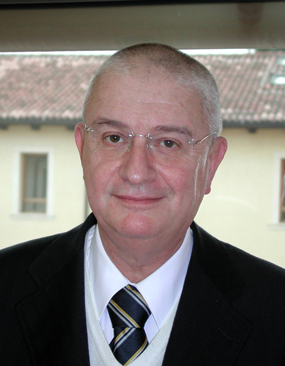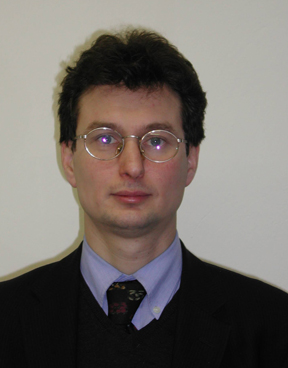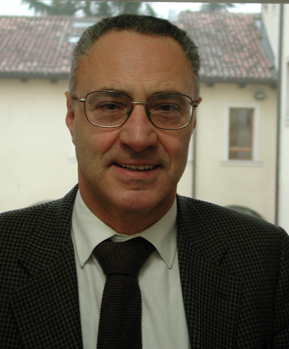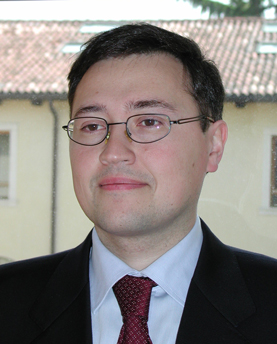Studying at the University of Verona
Here you can find information on the organisational aspects of the Programme, lecture timetables, learning activities and useful contact details for your time at the University, from enrolment to graduation.
Academic calendar
The academic calendar shows the deadlines and scheduled events that are relevant to students, teaching and technical-administrative staff of the University. Public holidays and University closures are also indicated. The academic year normally begins on 1 October each year and ends on 30 September of the following year.
Course calendar
The Academic Calendar sets out the degree programme lecture and exam timetables, as well as the relevant university closure dates..
| Period | From | To |
|---|---|---|
| 1° periodo di lezioni | Oct 3, 2011 | Dec 16, 2011 |
| Periodo riservato ad eventuali recuperi di lezioni - dicembre 2011 | Dec 19, 2011 | Dec 20, 2011 |
| 2° periodo di lezioni - febbraio/aprile 2012 | Feb 13, 2012 | Apr 2, 2012 |
| 2° periodo di lezioni - aprile/maggio 2012 | Apr 11, 2012 | May 8, 2012 |
| Periodo riservato ad eventuali recuperi di lezioni - maggio 2012 | May 9, 2012 | May 12, 2012 |
| Session | From | To |
|---|---|---|
| Sessione straordinaria (solo studenti fuori corso) - dicembre 2011 | Dec 21, 2011 | Dec 23, 2011 |
| Sessione invernale - 1° appello | Jan 9, 2012 | Jan 14, 2012 |
| Sessione invernale - 2° appello | Feb 6, 2012 | Feb 11, 2012 |
| Sessione straordinaria (solo studenti fuori corso) - aprile 2012 | Apr 3, 2012 | Apr 5, 2012 |
| Sessione estiva - 1° appello | May 14, 2012 | May 19, 2012 |
| Sessione estiva - 2° appello | Jun 11, 2012 | Jun 16, 2012 |
| Sessione estiva - 3° appello | Jul 9, 2012 | Jul 14, 2012 |
| Sessione autunnale - 1° appello | Aug 29, 2012 | Sep 4, 2012 |
| Sessione autunnale - 2° appello | Sep 24, 2012 | Sep 29, 2012 |
| Session | From | To |
|---|---|---|
| (Termine presentazione tesi di laurea - sessione ottobre 2011) | Sep 30, 2011 | Sep 30, 2011 |
| Sessione autunnale - ottobre 2011 | Oct 24, 2011 | Oct 25, 2011 |
| (Termine presentazione tesi di laurea - sessione febbraio 2012) | Jan 11, 2012 | Jan 11, 2011 |
| Sessione invernale - febbraio 2012 | Feb 2, 2012 | Feb 3, 2012 |
| (Termine presentazione tesi di laurea - sessione marzo 2012) | Mar 5, 2012 | Mar 5, 2012 |
| Sessione invernale - marzo 2012 | Mar 28, 2012 | Mar 30, 2012 |
| (Termine presentazione tesi di laurea - sessione giugno 2012) | Jun 4, 2012 | Jun 4, 2012 |
| Sessione estiva - giugno 2012 | Jun 28, 2012 | Jun 29, 2012 |
| (Termine presentazione tesi di laurea - sessione settembre 2012) | Aug 29, 2012 | Aug 29, 2012 |
| Sessione autunnale - settembre 2012 | Sep 19, 2012 | Sep 20, 2012 |
| Period | From | To |
|---|---|---|
| Festa di Ognissanti | Nov 1, 2011 | Nov 1, 2011 |
| Festa dell'Immacolata | Dec 8, 2011 | Dec 8, 2011 |
| Vacanze Natalizie | Dec 24, 2011 | Jan 6, 2012 |
| Vacanze Pasquali | Apr 6, 2012 | Apr 10, 2012 |
| Festa della Liberazione | Apr 25, 2012 | Apr 25, 2012 |
| Festa dei Lavoratori | May 1, 2012 | May 1, 2012 |
| Ricorrenza del Santo Patrono | May 21, 2012 | May 21, 2012 |
| Festa della Repubblica | Jun 2, 2012 | Jun 2, 2012 |
| Vacanze estive | Aug 8, 2012 | Aug 15, 2012 |
Exam calendar
Exam dates and rounds are managed by the relevant Law Teaching and Student Services Unit.
To view all the exam sessions available, please use the Exam dashboard on ESSE3.
If you forgot your login details or have problems logging in, please contact the relevant IT HelpDesk, or check the login details recovery web page.
Should you have any doubts or questions, please check the Enrollment FAQs
Academic staff
 valentina.adami@univr.it
valentina.adami@univr.it
 giovanni.alberti@univr.it
giovanni.alberti@univr.it
 mariacaterina.baruffi@univr.it
mariacaterina.baruffi@univr.it

Corletto Daniele
 daniele.corletto@univr.it
daniele.corletto@univr.it
 +39 045 8028814
+39 045 8028814
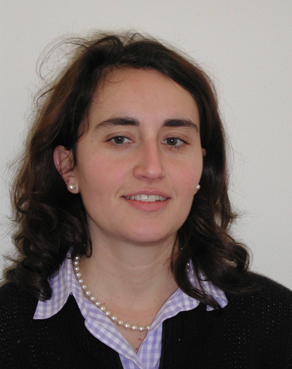
Crivelli Elisabetta
 elisabetta.crivelli@univr.it
elisabetta.crivelli@univr.it
 +39 045 8028808
+39 045 8028808

Dalla Massara Tommaso
 tommaso.dallamassara@univr.it
tommaso.dallamassara@univr.it
 +39 045 8028810
+39 045 8028810
 roberto.flor@univr.it
roberto.flor@univr.it
Nardon Erika
 erika.nardon@unicatt.it
erika.nardon@unicatt.it
 +39 045 8028816
+39 045 8028816

Patrono Paolo
 paolo.patrono@univr.it
paolo.patrono@univr.it
 +39 045 8028813
+39 045 8028813
Riguzzi Maurizio
 maurizio.riguzzi@univr.it
maurizio.riguzzi@univr.it
 +39 045 8028852
+39 045 8028852
 lorenzo.salvatore@univr.it
lorenzo.salvatore@univr.it
 girolamo.sciullo@univr.it
girolamo.sciullo@univr.it
Strano Silvana
 silvana.stranoligato@univr.it
silvana.stranoligato@univr.it
 +39 045 8028856
+39 045 8028856
Valorzi Andrea
 +39 045 8028812
+39 045 8028812
 alessio.zaccaria@univr.it
alessio.zaccaria@univr.it
Zanuso Francesca
 francesca.zanuso@univr.it
francesca.zanuso@univr.it
 +39 045 8028811
+39 045 8028811
Study Plan
The Study Plan includes all modules, teaching and learning activities that each student will need to undertake during their time at the University.
Please select your Study Plan based on your enrollment year.
1° Year
| Modules | Credits | TAF | SSD |
|---|
Principles of economics
Roman Law Institutions
History of Medieval and Modern Law
2° Year activated in the A.Y. 2012/2013
| Modules | Credits | TAF | SSD |
|---|
3° Year activated in the A.Y. 2013/2014
| Modules | Credits | TAF | SSD |
|---|
4° Year activated in the A.Y. 2014/2015
| Modules | Credits | TAF | SSD |
|---|
5° Year activated in the A.Y. 2015/2016
| Modules | Credits | TAF | SSD |
|---|
| Modules | Credits | TAF | SSD |
|---|
Principles of economics
Roman Law Institutions
History of Medieval and Modern Law
| Modules | Credits | TAF | SSD |
|---|
| Modules | Credits | TAF | SSD |
|---|
| Modules | Credits | TAF | SSD |
|---|
| Modules | Credits | TAF | SSD |
|---|
Legend | Type of training activity (TTA)
TAF (Type of Educational Activity) All courses and activities are classified into different types of educational activities, indicated by a letter.
Philosophy of Law [Matricole dispari] (2011/2012)
Teaching code
4S00316
Teacher
Coordinator
Credits
9
Language
Italian
Scientific Disciplinary Sector (SSD)
IUS/20 - PHILOSOPHY OF LAW
Period
1° periodo di lezioni dal Oct 3, 2011 al Dec 16, 2011.
Location
VERONA
Learning outcomes
The reflection on the legal organization of inter-subjective relationships represents the background of this academic discipline. Within such a frame, Philosophy of Law aims at investigating what founds and justifies choices taken by the legislator, by judges, by jurists, or by citizens, and trying to evaluate their reasons and their coherence and consistency with the search for a recta ratio.
By analysing and critically evaluating the main doctrines of modernity , the course intends, firstly, to underline the limits of both a normativistic and formalistic approach to jurisprudence and, secondly, to rediscover the worth of a classical, procedural and dialectic, approach to legal experience.
Examination Methods
L'esame di svolge in forma orale.
Teaching materials e documents
-
 Programma e testi consigliati
(msword, it, 23 KB, 26/08/11)
Programma e testi consigliati
(msword, it, 23 KB, 26/08/11)
Type D and Type F activities
Modules not yet included
Career prospects
Module/Programme news
News for students
There you will find information, resources and services useful during your time at the University (Student’s exam record, your study plan on ESSE3, Distance Learning courses, university email account, office forms, administrative procedures, etc.). You can log into MyUnivr with your GIA login details: only in this way will you be able to receive notification of all the notices from your teachers and your secretariat via email and soon also via the Univr app.
Language skills
Graduation
Internships
Internships are aimed at enabling students to gain direct knowledge of the world of work and to acquire specific professional skills.
Internships are carried out under the responsibility of an individual lecturer, and can be carried out in professional firms, public administration bodies and companies recognised by the University of Verona.
Any CFU credits gained by doing internships will be recognised and recorded by the University in accordance with the relevant University regulations in force (Regolamento d’Ateneo per il riconoscimento dei crediti maturati negli stage universitari).
For further information on internships, please go to: https://www.univr.it/it/i-nostri-servizi/stage-e-tirocini.

